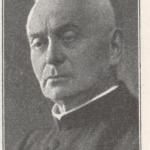“Please Hit ‘Subscribe’”! If you have received benefit from this or any of my other 4,600+ articles, please follow this blog by signing up (with your email address) on the sidebar to the right (you may have to scroll down a bit), above where there is an icon bar, “Sign Me Up!”: to receive notice when I post a new blog article. This is the equivalent of subscribing to a YouTube channel. Please also consider following me on Twitter / X and purchasing one or more of my 55 books. All of this helps me get more exposure, and (however little!) more income for my full-time apologetics work. Thanks so much and happy reading!
***
Martin Luther’s words will be in blue; James Swan’s in green.
***
Luther preached in a sermon:
This is what St. Paul meant when he preaches about love. “If I speak in the tongues of angels;” and again: “If I had all faith so that I could move mountains, but did not have love, then I would still be nothing,” etc. (1 Corinthians 13[:1-2]) If a person goes off securely in the thought that he has faith, and yet never experiences it, he must decay and dry up; his faith will be found nowhere at all when it comes to the point that it should be found.
The dear apostles certainly saw this, and we experience it. The world always either boasts falsely about faith, or wants to be holy without faith. If we preach about faith and grace, no one wants to do works. If we promote works, no one wants faith. Those who keep to the true middle course are very rare. Indeed, it is even hard for righteous Christians.
I confess for myself — and without a doubt others must also confess, that I lack the diligence and seriousness [some translations: “earnestness”], which I should now much more than before; I am much more careless than I was under the papacy. Nowhere is there now the seriousness [some translations: “zeal”] with the Gospel which we saw previously among the monks and priests, when people established and built so much, and no one was so poor that he would not give something. However, now there is not one city which would support a preacher, and nothing except only robbing and stealing among the people, and no one restrains it. Where does such a shameful affliction come from? They cry out: “From the doctrine they teach, that people should not rely on works!” However, it is the devil himself who falsely blames this on the pure, saving doctrine; it is the fault of his and people’s malice who misuse this doctrine — as well as our old Adam who always wants to follow the forest trail to nowhere- and think that it is unnecessary, even if we do not do many good works and so become unintentionally lazy and negligent and stale, until we completely lose the strength and savor of faith. (Sermon on 1 John 4:16-21: from a series of sermons on 1 John and love, dated 1532-1533; in Luther’s Works, Vol. 78: Church Postil IV [2015], 365-405; click “Look Inside” under the image of the cover for the Table of Contents; my bolding)
Pretty striking admission, I would say. It’s so jarring to Protestant ears, that Luther defender and vitriolic anti-Catholic James Swan felt compelled to write one of his notorious sophistical rationalizations in a futile attempt to spin Luther’s words so as to make them (to gullible readers) not mean what they plainly do mean.
A portion of these words appeared in the 1884 volume, Luther’s Own Statements, by Henry O’Connor (p. 56), and in the third volume of six of the title, Luther, by Hartmann Grisar (p. 206); dated 1914. Swan, writing in November 2011, chides Catholics who produce this citation, in his usual boorish fashion:
If you search around on the Internet for this quote, you’ll probably not find any of Rome’s current defenders producing a primary context. What you’ll typically find is the reference “Walch IX 1311.” I doubt any of Rome’s current defenders actually possess or have read this old source. Most of them couldn’t tell you if this statement was from a treatise, letter, sermon, or a Table Talk recording. Their “deep into history” triumphalism is often abandoned when Luther is the subject. Where did Luther say it? What’s the context? These basic questions should be asked by anyone thinking of using this quote.
This is a ridiculous charge, for the simple reason that the entire context (the complete sermon) doesn’t seem to have been available in English until 2015 (four years after Swan originally wrote his article about the citation), when it was added to volume 78 of Luther’s Works (originally, 55 volumes). What Swan was demanding, then, was for Catholics to find obscure German collections of Luther’s works (and apparently to take a course in German beforehand), locate the sermon and read all of it. If one knows German, great, but if not, it’s an unnecessary demand on his part. O’Connor (footnote 164) made the reference to Walch.
As Swan himself notes, this “refers to a set of Luther’s works published 1740-1753 by Johann Georg Walch. . . .Here is volume IX, 1311 from the old set.” There is nothing improper whatsoever for a scholar to cite a primary source of a citation in another language, and for an apologist like myself to cite him as a secondary source citing the primary source. But I’m not required to learn German, so as to understand the words in the context of where they appear. The words are self-evident as they are, and stand alone, in any event (as I will discuss in more depth below). Context doesn’t add all that much.
Likewise, Swan notes that Grisar cited the Erlangen edition of Luther’s works in German, and cites the volume online, and the exact page Grisar quotes from. Additionally, he mentions that the citation is also present in vol. 36 of the standard Weimar edition of Luther’s works in German, from 1883, citing the page (469). None of this is the least bit improper or dishonest. Yet Swan always makes that insinuation when Catholic apologists and others cite secondary sources such as these.
Grisar described the words as coming from “a sermon in 1532.” He gives the German source if anyone wants to look it up. That’s what scholars do. But if I dare to cite Luther from Grisar, as I have done hundreds of times. Swan scolds me, as if I have committed a capital crime. It’s nonsense! And it’s embarrassing, from one intelligent enough to obtain a degree in philosophy. You would think he knows how basic research and citation work. But he seems not to.
Swan in his article continues his usual asinine, insipid, vapid accusations against Catholics and how they interpret this utterance of Luther:
This quote is used by Roman Catholics in a variety of ways. First, it sometimes serves as proof Luther admitted his personal life was characterized by sin, or that once he was freed from Rome, his moral and spiritual life became worse (see below). Second, it’s sometimes used as proof that the doctrine of justification by faith alone does not produce good works, and Luther here admitted it. . . . Another blogger uses the quote as proof Luther had “regrets as to the relative failure of the ‘Reformation’ ” and “the lower state of general morality.”
That blogger was yours truly, in a paper of mine dated May 2008 and originally entitled, Martin Luther’s Regrets as to the Relative Failure of the ‘Reformation’. I later uploaded it to my current blog on Patheos, and it’s entitled, Did Luther Regret Anything About His “Reformation”? Note the question in the new title, and the word “relative” in the original one. This shows where I am coming from. So do my clear, concise words in the article itself (if we want to talk about “context”!):
Luther never said that the “Reformation” as a whole was a failure, or shouldn’t have happened, but he said quite a bit about how the new Protestants were miserably failing in manifesting the superiority of their system over Catholicism. . . .
I will cite only those statements that directly connect Protestant teaching to the negative results observed in his own lifetime: where he himself observes that there is some causal connection, or when he unfavorably compares Protestant behavior to Catholic.
When, on the other hand, he states, for example, that popular morals are going to pot, I haven’t cited those statements, if they don’t express the notion that the result was due (partially or wholly) to the new Lutheran teachings. I would contend that there were probably many different causes (as in most questions of history).
Luther’s statements are self-explanatory. The man always said exactly what he meant and meant what he said. No one can deny that. The evidence is in my paper above and many other similar ones I have written, too:
Martin Luther: “Our manner of life is as evil as is that of the papists” [12-29-07]
Luther on Early Lutherans: “Ingrates” Who Deserve God’s “Wrath” [2-28-10]
Luther’s Disgust Over Protestant Sectarianism and Radical Heresies [3-1-10; abridged and published in the National Catholic Register: 9-8-17]
Luther on Early Lutheran Degeneracy & Bad Witness [3-2-10]
Was Luther in His Old Age in Agony & Bitter About Lutheranism? [3-3-10]
Luther’s “Agony” Over Sectarianism (vs. a Lutheran) [3-10-10]
Luther: Monks & Priests More “Earnest” Than Lutherans [11-10-11]
This is not nothing. There is quite a bit here to examine. Luther complained frequently about these sorts of things. Swan majors on the minors and absurdly quibbles about sources and perfectly acceptable research techniques. What I’m interested is an in-depth analysis of these words of Luther (something Swan virtually never does; he’s so busy rationalizing and engaging in obfuscation and obscurantist anti-Catholicism). Let’s look at the key words bit-by-bit:
I confess for myself — and without a doubt others must also confess, that I lack the diligence and seriousness, which I should now much more than before; I am much more careless than I was under the papacy.
We get that Luther didn’t reject his own so-called “Reformation” or his own conception of the gospel and justification by faith alone. That’s not at issue. He didn’t. Period. But in my opinion that makes his words all the more fascinating and even mysterious. Luther wants to — at least in part — blame it on the devil and those in his Lutheran party who corrupt his pure gospel and are bad examples (hypocritical, nominal folks that all religious groups contain). But that doesn’t totally explain this, precisely because he includes himself among those who aren’t living up to the ideal.
This is now 1532 or 1533, or 15-16 years after the Protestant Revolution began. Why is it that Luther — flush with all of his supposedly new discoveries about grace and Christianity — is wanting in the “diligence and seriousness” that he used to have as a Catholic, and is “much more careless” than he was before he decided to ditch Catholicism? Does that not imply that there is something deficient in the new belief-system that he decided to follow? If not, what accounts for it? It’s easy to blame the devil, but I think Luther failed to make a full examination of why these things were as they were. Looked at from another angle, what is it that Catholics possessed that enabled them to — widely — be more diligent and serious and careful than Luther and the Lutherans were? Of what spiritual advantage was Lutheranism if this was its fruit?
Nowhere is there now the seriousness with the Gospel which we saw previously among the monks and priests,
Note the extremity of his statement! He’s not just saying that there are problems here and there with the new group of Lutherans, as there would be in any group at any time. No; “nowhere” is a serious adherence to the gospel seen among the Lutherans, according to Luther. And to add insult to injury, the Catholics — who were supposedly so spiritually ignorant and less advanced than Lutherans –, were doing much better spiritually than the Lutherans: even, indeed, the monks and priests (!!), whom Luther often excoriated. How can this be? One wonders, then, how this is “reform” at all, with such miserable results “on the ground.”
when people established and built so much, and no one was so poor that he would not give something.
Again, Luther is praising Catholics to the skies, over against the Lutherans. They “built” and “established” things. And even the poorest among them gave alms to others in more need. Why? Things improved later on among Lutherans and Protestants in general, but it must be asked why these sorts of things were the initial manifestation of the new religious movement. To me, that is something to think and wonder about. One need not be “anti-Protestant” to do that. We’re simply wondering why this was, and taking Luther at his word as to his report.
However, now there is not one city which would support a preacher, and nothing except only robbing and stealing among the people, and no one restrains it.
More extraordinary observations . . . Not even “one“ city would support a Lutheran pastor! That’s incredible! Then he says nothing is taking place except “robbing and stealing.”
To me, these things are not theological discussions, but rather historical and sociological ones; even psychological to some extent. Personally, I find them interesting and worth pondering and discussing. Many others don’t. What else is new?
*
***
*
Practical Matters: Perhaps some of my 4,600+ free online articles (the most comprehensive “one-stop” Catholic apologetics site) or fifty-five books have helped you (by God’s grace) to decide to become Catholic or to return to the Church, or better understand some doctrines and why we believe them.
Or you may believe my work is worthy to support for the purpose of apologetics and evangelism in general. If so, please seriously consider a much-needed financial contribution. I’m always in need of more funds: especially monthly support. “The laborer is worthy of his wages” (1 Tim 5:18, NKJV). 1 December 2021 was my 20th anniversary as a full-time Catholic apologist, and February 2022 marked the 25th anniversary of my blog.
PayPal donations are the easiest: just send to my email address: [email protected]. Here’s also a second page to get to PayPal. You’ll see the term “Catholic Used Book Service”, which is my old side-business. To learn about the different methods of contributing (including Zelle), see my page: About Catholic Apologist Dave Armstrong / Donation Information. Thanks a million from the bottom of my heart!
*
***
*
Photo credit: Posthumous Portrait of Martin Luther as an Augustinian Monk (after 1546), from the workshop of Lucas Cranach the Elder (1472-1553) [public domain / Wikimedia Commons]
Summary: Martin Luther, the founder of Protestantism, thought that the state of piety & morality among his Lutherans (and himself) was widely less stellar than that of Catholics.














